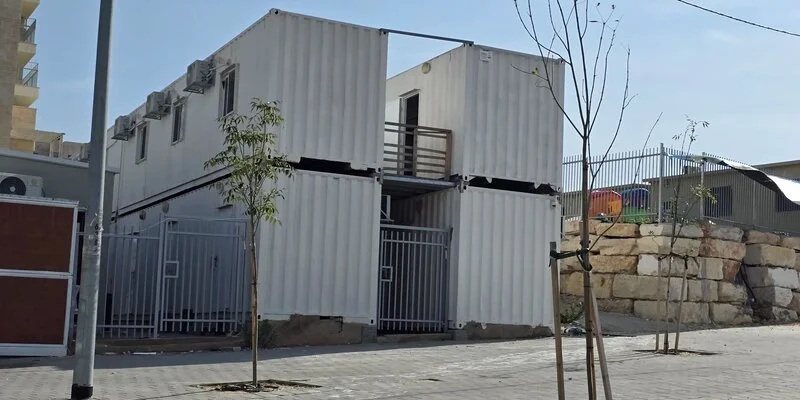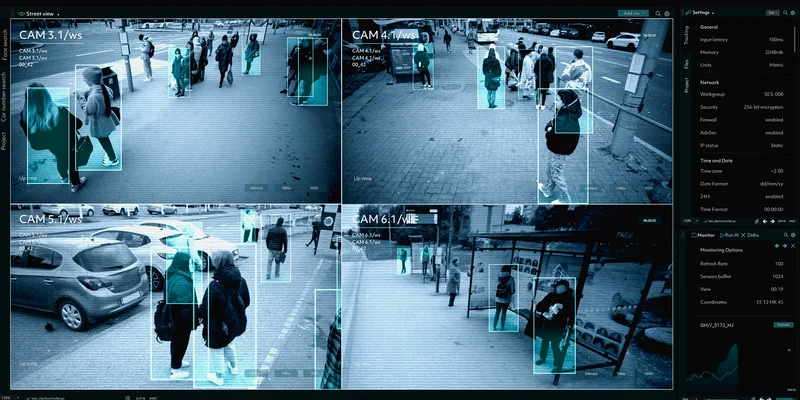Chained to a Bed for Three Days
Psychiatric hospitals in Israel refuse to admit female prisoners experiencing emotional distress, claiming they are unable to treat them due to the constraints of incarceration. In response, the Prison Service attempts to manage the risk by shackling these women and placing them in solitary confinement. As a result, the women are left without proper treatment for serious mental health issues, while male prisoners have access to a dedicated mental health care framework. Meanwhile, the Prison Service and the Ministry of Health continue to shift blame back and forth. How Israel Neglects Female Prisoners With Psychiatric Problems.


Psychiatric hospitals in Israel refuse to admit female prisoners experiencing emotional distress, claiming they are unable to treat them due to the constraints of incarceration. In response, the Prison Service attempts to manage the risk by shackling these women and placing them in solitary confinement. As a result, the women are left without proper treatment for serious mental health issues, while male prisoners have access to a dedicated mental health care framework. Meanwhile, the Prison Service and the Ministry of Health continue to shift blame back and forth. How Israel Neglects Female Prisoners With Psychiatric Problems.

Psychiatric hospitals in Israel refuse to admit female prisoners experiencing emotional distress, claiming they are unable to treat them due to the constraints of incarceration. In response, the Prison Service attempts to manage the risk by shackling these women and placing them in solitary confinement. As a result, the women are left without proper treatment for serious mental health issues, while male prisoners have access to a dedicated mental health care framework. Meanwhile, the Prison Service and the Ministry of Health continue to shift blame back and forth. How Israel Neglects Female Prisoners With Psychiatric Problems.
Illustration: Shutterstock

Roni Singer
October 5, 2025
Summary


Listen to a Dynamic Summary of the Article
Created using NotebookLM AI tool
Tali (not her real name) was an inmate at the Neve Tirzah prison in Ramle. In June this year, she was taken to the Shalvata Mental Health Center, where she spent three days manacled and shackled to a bed, with three Prison Service guards watching over her. She was not permitted to get out of bed to relieve herself, was suffering from suspected dehydration and was not given a proper medical examination. At the end of the third day, the management of Shalvata took the unusual and extraordinary step of urging the Public Defenders Office to intervene.
“We are unable to treat the patients and we therefore ask the court to order the removal of the restraints and allow us to conduct conversations with the patients without the presence of Prison Service guards,” they wrote in an urgent petition to the District Court.
The Prison Service’s response was unequivocal. “The petitioner is deemed to be liable to violence and was involved in a number of negative incidents with other inmates and with prison staff. Recently, her emotional condition has deteriorated, leading to violent outbursts and aggression, which pose a danger,” officials from the Prison Service responded, refusing to remove her restraints or to scale back the number and hours of guards.
A dispute erupted between the two bodies during the court hearing. On the one hand was a mental health hospital which argued that it was unable to diagnose and treat an inmate who was physically restrained and under the influence of sedatives; on the other hand was the Israel Prison Service, which insisted that the hospital provide treatment no matter how harsh the prisoner’s condition.
“Tali is unhoused. She doesn’t have a soul in the world to stand up for her, but the hospital was troubled by the situation she found herself in and decided to act,” says Dr. Sharon Gueta, Tali’s defense attorney. One other thing became evident thanks to that hearing: Tali’s case is not unusual. It did, however, highlight the permanent gulf between the mental health care that male inmates receive compared to female prisoners. Why? As always, it seems that women’s mental health just isn’t important enough.
.jpg)
‘It’s easier to restrain them’
According to sources familiar with the issue, the Prison Service is not capable – and not supposed to be capable – of dealing with extreme cases of psychological distress among inmates in women’s prisons. But, for the most part, psychiatric hospitals refuse to admit female prisoners, claiming that they cannot treat them given the restrictions enforced by their incarceration. “It’s easier for the IPS to restrain them, since it means less manpower is needed to guard them. When these prisoners are restrained to prevent them from lashing out, they also give them sedatives – which makes diagnosing them impossible,” says one law enforcement official.
Attorney Reut Korolik, director of the Releases and Detentions Department at the Public Defender’s Office, expands: “When the civilian [healthcare] system refused to take them in, they are sent back to Neve Tirzah and held in segregation from the general prison population. I have one client who, when she was arrested, was deemed competent to stand trial – but her condition deteriorated and she started experiencing psychotic episodes. The civilian hospital sent her back to prison, where she was held in solitary confinement – which exacerbated her condition even more.”
Michal Orkabi-Danziger, another attorney from the Public Defender’s Office, also had a client who was held in solitary confinement simply because of her distressed mental state. None of the civilian hospitals were willing to admit her because she was a prisoner.
.jpg)
In contrast, there is a very well-oiled mechanism operating in men’s prisons. The IPS runs its own mental health facility, the Maban, which has 35 beds in an open ward and another 35 in secure wards. The facility operates like a civilian hospital in every respect. Any male prisoner who experiences psychotic episodes or any other mental health distress gets full treatment at the facility.
In addition, the IPS has Magen – the prison facility situated within Ayalon Prison which houses the Maban’s open and closed psychiatric wards. “It’s a prison that holds a population of people dealing with severe mental health needs who don’t require emergency treatment. They receive a slightly different kind of care, like learning basic life skills. The place is also for people on the spectrum. But all these wonderful resources don’t exist for women,” says Korolik.
It would appear that the gulf between the treatment available for male and female inmates is a function of the numbers. There are currently 12,000 male inmates in Israeli prisons – excluding security prisoners – compared to just 200 women who are being held in Neve Tirzah. Estimates say that around 40 of these women are suffering from some kind of mental disorder and around a third experience psychotic episodes. Given these low numbers, it seems that the IPS does not consider it urgent to find a solution to what is little more than a handful of cases.
The price, however, is heavy. “Neve Tirzah is extraordinary when it comes to overall treatment of female inmates; everything is trauma-oriented and everything is made readily available to the women – but there’s a problem when it comes to the inmate population with special needs,” says Korolik. In the past, the Maban facility accepted women, but not any more. Since then, female inmates experiencing psychosis or in severe mental distress are sent to civilian hospitals. In most cases, the civilian hospitals refuse to treat them and send them straight back to the prison, where the IPS staff is supposed to handle them. A man in that situation would be sent to a closed psychiatric ward; a woman will be put in solitary confinement.”
A vicious cycle of deterioration and nontreatment
Reports written by the Public Defender’s Office have repeatedly described situations in which women experiencing psychosis are held in segregated cells or solitary confinement and are not given suitable treatment. A report issued in August 2025 stated that: “We encountered severe distress among female inmates in extreme conditions. Shouting, meaningless statements thrown into the air, strong smells of urine and feces, banging on cell doors... The existing solution provided by the prison is deficient and is not suitable for the number of female inmates who require monitoring…”
The Public Defender’s Office singled out a case when the Be’er Ya’akov Mental Health Center refused to admit a female inmate who was in severe psychological distress, saying that “the hospital has decided that its emergency room does not accept any prisoners.” The inmate in question was held in her cell for 23 hours a day, lashed out, smeared feces on the walls of her cell, and refused to eat – and it was impossible to enter the cell to examine her. Under these conditions, the report claimed, holding inmates in their cell merely exacerbates their mental distress. Other female inmates are only put in solitary confinement when there is concern they could try to take their own lives.
“It’s very hard for the IPS to deal with it. It’s not only concern about suicide attempts, but it also created difficulties when you have a ‘crazy one’ on the wing; it has an effect on the other inmates and on how the staff perform. A male inmate in the same situation is sent straight to Maban to be sorted out. But when it’s a woman, there are no solutions,” says Orkabi-Danziger, who is currently representing another female inmate in a similar situation.
Inmates at Neve Tirzah do not get the treatment they need, so their condition deteriorates. Meanwhile, everyone – the system, the family and the Public Defender’s Office stand on the sidelines without solutions. “It’s part of the treatment that the IPS has to provide. I do not know who is more at fault – the IPS or the hospitals. It’s high time to build a mental health facility for those women at Neve Tirzah,” says Orkabi-Danziger. Meanwhile, Korolik says that “it’s all about budgets and priorities. Women in this kind of situation are not offered rehabilitation, so they are sent back into society – unlike men in that situation.”
The outcome is an ever-worsening cycle of deterioration and nontreatment. The psychiatric hospitals reject anyone they cannot treat, the IPS insists that it has to protect the public and the inmates, so it has to restrain them and maintain a close guard. So, despite years of discussions and reports, the discrimination continues: A male prisoner suffering from mental health issues gets treatment at a dedicated facility, while a female inmate in the same situation finds herself manacled and shackled to the bed or kept in solitary confinement for days on end.
And what about Tali? When the court ordered her released from restraints, she got the treatment she needed, her condition was stabilized and she was sent back to Neve Tirzah.
Responses
The Israel Prison Service said in response that it “provides inpatient care to all inmates and detainees who need it at psychiatric hospitals. The IPS Mental Health Center [Maban] operates as a branch of Be’er Ya’akov Hospital, which is under the responsibility of the Ministry of Health. Decisions regarding hospitalization, including the decision not to hospitalize women, are made by the hospital director and the Ministry of Health.”
The Ministry of Health submitted the following response: “By its very nature, the Israel Prison Service is responsible for the physical and mental health of female inmates, especially within prisons. When a need for inpatient hospital care arises, the medical teams work to provide the best possible treatment. Psychiatric care while restrained is problematic from an ethical and therapeutic standpoint, and could compromise the diagnosis, treatment, and its integrity.
“The Ministry of Health works to provide a solution whenever possible in these cases, including finding an alternative place for the inmate’s treatment/hospitalization that is suitable for her condition and needs. As part of this, the ministry is working to establish 10 inpatient beds with maximum security for high-risk female patients, including at one of the psychiatric hospitals when necessary.
“It is important to note that in the absence of a final agreement between the care providers and the IPS on how to treat the inmates, an internal procedure is being implemented to regulate conduct in these cases. It ensures a balance between the needs of diagnosis and medical treatment and security requirements, including performing a diagnosis and/or providing outpatient treatment rather than necessarily hospitalization.”













